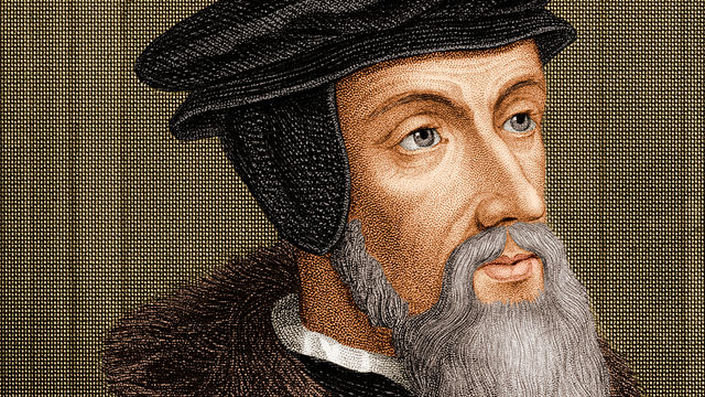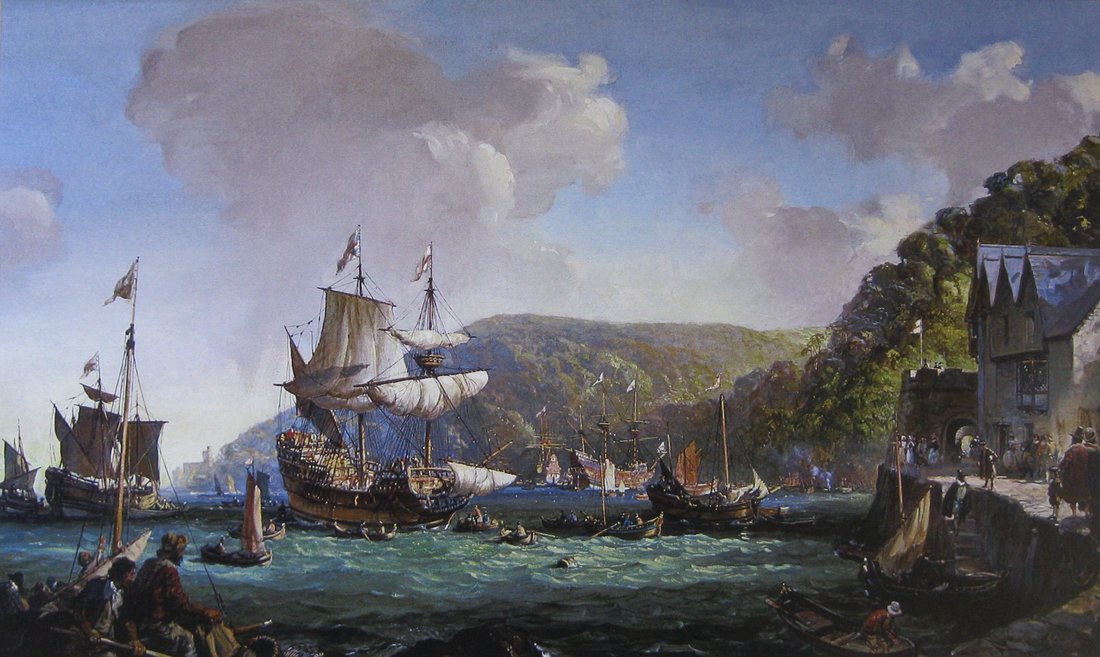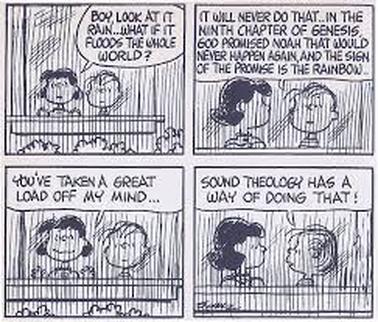|
Wecome to Logia, the personal blog of Paul Hartwig. Reflections and resources to enhance understanding of what God has revealed of himself in Scripture.
|
|
Like it or not, John Calvin is here to say. He is one of those few persons who have left their own stamp on history. Books, seminaries, churches, sons’ names, comic strips, conferences, class room debates and denominational magazines continue to carry Calvin into 2010 and beyond. In 2009 people celebrated 150 years since Charles Darwin’s birth, and 500 years since Calvin’s. Both these men propagated systems of thought that have profoundly influenced Western civilization. The mere mention of the name ‘Calvin’ and ‘Darwin’, will provoke either love or hated, words of infamy or eulogy, but never neutral indifference. We might say (with much oversimplification) that each man went in mutually opposite directions with incredible zeal and fruition. Whilst Darwin penetrated the world of man and of nature, Calvin scrutinized God and His Word.
John Calvin was born in France in 1509. Providence enabled him to start his studies from an early age. Being by temperament driven and decisive, he excelled in his classical, theological and legal fields of study. Then at age 23, whilst in Paris, he experienced a conversion and joined the Protestant cause. “God” he later said, “by a sudden conversion subdued and brought my mind to a teachable frame”. From then on Calvin was mastered by a sense of the Majesty of God and His Word, inspiring an unreserved surrender of himself in every way. In a unique way providence, natural temperament, intellectual rigour and spiritual devotion converged and were thenceforth directed to the rebuilding of the Church on its true biblical foundation. As someone has said, he was able to take the Protestant mob, and turn it into an army. My first impression of Calvin was of a man who limited God’s love to a few, who ruled Geneva with the iron fist of a dictator, being of a stern, cold and marble-like demeanour. However, though I could justify leaving John Calvin on the shelf of history, I could not do that with Romans chapter 9. After a while I came ‘kicking and screaming’ to the conclusion that the only faithful reading of that chapter was the traditional ‘Calvinistic’ one. Since then, I began a personal reassessment of the famous Genevan Reformer. I realized that prejudice, caricature and second hand opinions have prevented many from appreciating his huge contribution to both theology and the church. This does not mean that we must slavishly follow the reformer in every way as some seem to do. Rather, we should critically appreciate his significance as one whose writings so closely approximated the body of truth given for us in the Scriptures. Will John Calvin always be a part of Christian theology? I believe he will be. The comprehensive and biblical nature of his writings is unique. His sense of the Majesty and Glory of God in all things remains catalytic for spiritual reformation. His self-immolation for the cause of the Lord and His church is heroic. His stand point is so clearly opposed to the humanizing tendency of the world and human nature. His zeal to purge the church of foreign elements and to establish her strictly upon the foundation of biblical revelation will always be an ongoing principle in the Body of Christ. So, I challenge you to get beyond the accretions of historical prejudice. Separate the 16th century form of his writings and appreciate the quality of his content. Disagree with him, agree with him. Go to the primary sources of his writings. Read his Institutes of the Christian Religion and his Commentaries. Then I’m sure you will understand why 500 years later we are still talking about John Calvin. “Doctrine is not an affair of the tongue, but of the life; is not apprehended by the intellect and memory alone… but is received only when it possesses the whole soul, and finds its seat in the innermost recesses of the heart” (from The Institutes: Book 3:Chapter 6)
0 Comments
The following farewell words, spoken by an English pastor in Leiden to his America-bound congregation in 1620, remain crucial for any student of Scripture. Edward Winslow, who traveled on The Mayflower, remembers Pastor Robinson's parting exhortation:
We we now ere long to part asunder, and the Lord knoweth whether ever he [Robinson] should live to see our faces again. But whether the Lord had appointed it or not, he charged us before God and his blessed angels, to follow him no further than he followed Christ; and if God should reveal anything to us by any other instrument of his, to be as ready to receive it as ever we were to receive any truth by his ministry; for he was very confident the Lord had more truth and light yet to break forth out of his holy word. He took occasion also miserably to bewail the state and condition of the Reformed Churches, who were come to a period in religion, and would go no further than the instruments of their Reformation. As, for example, the Lutherans, they could not be drawn to go beyond what Luther saw; for whatever part of God’s will he had further imparted and revealed to Calvin, they will rather die than embrace it. And so also, saith he, you see the Calvinists, they stick where he left them; a misery much to be lamented; for though they were precious shining lights in their times, yet God had not revealed his whole will to them; and were they now living, saith he, they would be as ready and willing to embrace further light, as that they had received. Here also he put us in mind of our church covenant, at least that part of it whereby we promise and covenant with God and one with another, to receive whatsoever light or truth shall be made known to us from his written word; but withal exhorted us to take heed what we received for truth, and well to examine and compare it and weigh it with other Scriptures of truth before we received it. For, saith he, it is not possible the Christian world should come so lately out of such thick antichristian darkness, and that full perfection of knowledge should break forth at once. Another thing he commended to us, was that we should use all means to avoid and shake off the name of Brownist, being a mere nickname and brand to make religion odious and the professors of it to the Christian world. And to that end, said he, I should be glad if some godly minister would go over with you before my coming; for, said he, there will be no difference between the uncomformable ministers and you, when they come to the practices of the ordinances out of the kingdom. And so advised us by all means to endeavour to closely with the godly party of the kingdom of England, and rather to study union than division, viz. how near we might possibly without sin close with them, than in the least measure to affect division or separation from them. And be not loath to take another pastor or teacher, saith he; for that flock that hath two shepherds is not endangered but secured by it. One of the most important ways in which a Christian is called to learn is by listening to the Scriptures. This is particularly hard for us because most of us are very poor listeners. Yet we must cultivate this art if we are going to love the Scriptures (and people too). C S Lewis was a faithful guide in this art. Listen to the following words of his on Art Appreciation - and then go and do likewise with Scripture:
"We must look, and go on looking, till we have certainly seen exactly what is there. We sit down before the picture in order to have something done to us, not that we may do things with it. The first demand any work of art makes upon us is surrender. Look. Listen. Receive. Get yourself out of the way”. |
Categories
All
Archives
May 2023
|





